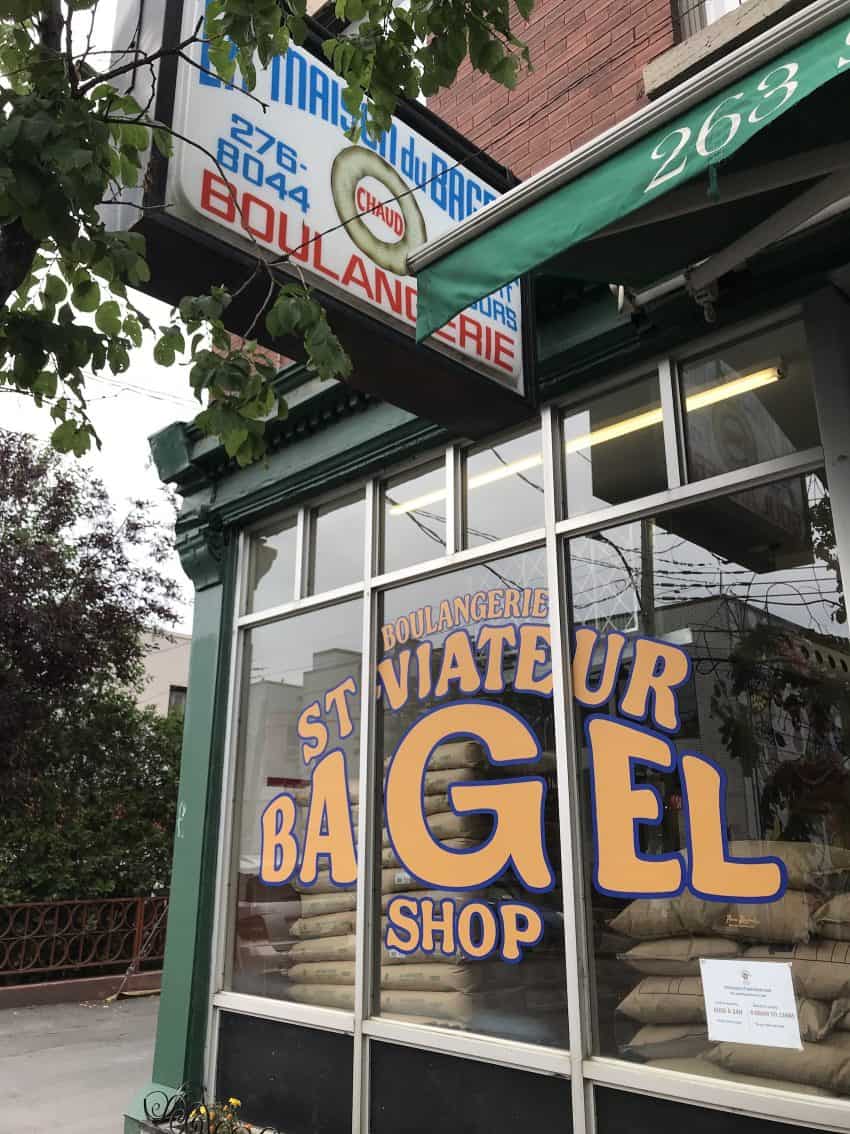There is a very simple answer to the question of which is better, New York City or Montreal bagels. Neither because, for me, it is like comparing apples and oranges. That said, nothing compares to real Montreal bagels from St. Viateur Street.
NYC and Montreal bagels have devoted followings, and preferences may vary depending on personal taste and regional affinity. Ultimately, it’s a matter of individual preference for which bagel style is more appealing.
Bagels from New York City (NYC) and Montreal are distinct and have notable differences in preparation and characteristics. Here’s a breakdown of how they are made differently, along with some pros and cons.
New York City Bagels:
|
Montreal Bagels:
|
Pros of NYC Bagels:
Cons of NYC Bagels:
|
Pros of Montreal Bagels:
Cons of Montreal Bagels:
|
New York City Water and Bagels
The water in New York City has often been credited as one factor contributing to the unique taste and texture of NYC bagels. While the exact impact of the water on bagel-making is still debated, here’s an overview of the connection between NYC water and bagels:
- Water Quality: New York City is known for having high-quality tap water. The city’s water supply comes from reservoirs in upstate New York and is treated to meet strict standards. The water is known for its purity, mineral content, and unique chemical composition.
- Mineral Content: The mineral content in the NYC water, particularly its low levels of calcium and magnesium, is believed to play a role in creating the distinct texture of NYC bagels. The lower mineral content affects the gluten development in the dough, resulting in a chewier and denser texture.
- Boiling Process: The traditional method of making NYC bagels involves boiling the dough briefly in water before baking. Some argue that the mineral composition of the water affects the boiling process, giving the bagels their characteristic shiny and slightly sweet crust.
- Flavour Perception: Water can influence the flavour perception of food and beverages. It is suggested that the taste of NYC tap water, known to be clean and flavorful, contributes to the overall taste experience of the bagels.
It’s important to note that the impact of water on bagels is not solely dependent on NYC’s water. Other factors, such as the recipe, dough preparation, and baking techniques, also play crucial roles in shaping the final product.
While the connection between NYC water and bagels has been the subject of much discussion and lore, it is worth noting that skilled bakers and bagel makers can replicate the characteristics of NYC-style bagels in other locations using local water sources and appropriate techniques.
Ultimately, while NYC water may influence the unique qualities of NYC bagels, it is just one element in the complex art of bagel-making, and the skills and techniques of the bakers themselves remain key in achieving the desired texture and taste.


